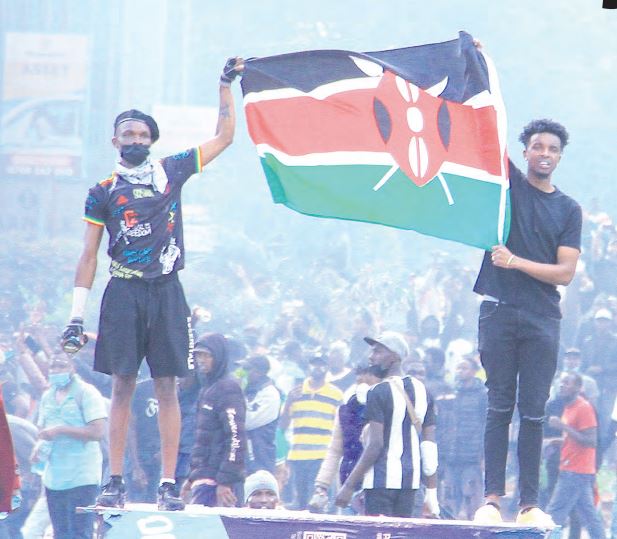
ODM deal with state seeks to address Gen Z concerns, says Osotsi
Says attacks on Raila misplaced.
Some propose the older wealthier baby boomers give way to younger generations as they are well-educated and more in touch.
In Summary

Audio By Vocalize

What if our older political class paved way for the younger generation to lead?
I recently followed a debate on social media about reasons why the baby boomer generation, who have accumulated wealth, power and general influence in the community, should pave way for the younger generation. The main author of the debate proposed the older political class should actively be replaced by the millennial generation.
Back home, just as in many other developing countries, it is very difficult for the latter two generations to find opportunities to lead in the political arena.
Reasons often cited include stereotypes rooted in social, cultural, political and economic perceptions.
Both generations have faced tough economic conditions, they are, however, highly educated, resilient and digital-savvy, thus, with high potential to lead.
In Kenya, the political landscape offers several key elective positions that individuals can vie for at both the national and county levels, established by the constitution. Statistics aside, here is how one can vividly describe the generational representation.
From the positions that is from the highest to the lowest political seat we can generalise that it’s only through nominated positions, as enshrined by the constitution that the youth can comfortably vie, as they are classified as marginalised. Political parties, mostly headed by the older generation, can therefore nominate the young millennial and Gen Z individuals to Parliament and county assemblies to represent youth, women and persons with disabilities, based on their proportion of elected seats.
The dynamics of the other political seats are, however, different. In our political system, one needs to have a super-significant amount of wealth, a dynamic mostly brought about by the needs of the electorate. In fact, when one is seen to be wealthy by the community or village mates, they propose that person vie for a seat. Campaigns are purely about money, and this is where most cannot compete with the baby boomer generation (born approximately 1946-1964).
The world over, the boomer generation is often considered wealthier than younger generations for several interrelated historical, economic and also in some cases, policy reasons. In Kenya, they benefited from the strong job market that emerged after Independence as industries were then expanding. Those who went to university had the ‘boom’-like Helb but on easier terms, tuition was low, thus low debt. Many boomers bought land and homes when they were relatively cheaper; many are now at the pension stage and benefiting from inheritance, among other reasons.
With the advantages cited above, the boomer generation, despite some challenges they might face, has the advantage of being stable enough, financially and even psychologically to vie for the most powerful positions. These include those at the national level, where the highest political seat is that of the president, who serves as the head of state and government. Others include the deputy president, mostly picked from within the same generation or the generation that follows, Gen X.
Other significant national positions for these two generations are MPs for 290 constituencies. More than 50 per cent of the MPs are from these two generations. In addition, each of the 47 counties elects one woman representative, whose primary role is to promote the interests of women and marginalised groups in the National Assembly. The narrative of the generations represented is the same as that of the highest and MP seats.
Similarly, each county elects a senator to represent its interest. This seat is important as it is supposed to ensure devolved funds are distributed equitably and utilised effectively.
There is a slightly higher number of millennials in the legislative arm of county governments, the MCAs who come from wards. Their role is to oversee the county, enact laws and represent residents.
As MCA seats may not be as influential as others, it is competitive but not as financially demanding during campaigns as those for higher office. That’s probably why millennial can be able to win the seats. Gen Z is still absent here.
We need not say more, therefore, when we see revolts such as last year’s #RejectFinanceBill protests, and a lot of rebelling from Gen Z youth and young millenials. This is replicated across the sub-Saharan Africa. These mentioned positions form the foundation of Kenya’s representative democracy, offering avenues for citizen participation and leadership across different levels of governance, but are they inclusive enough? Might it be time for the older generation to pave way for the younger generation?

Says attacks on Raila misplaced.